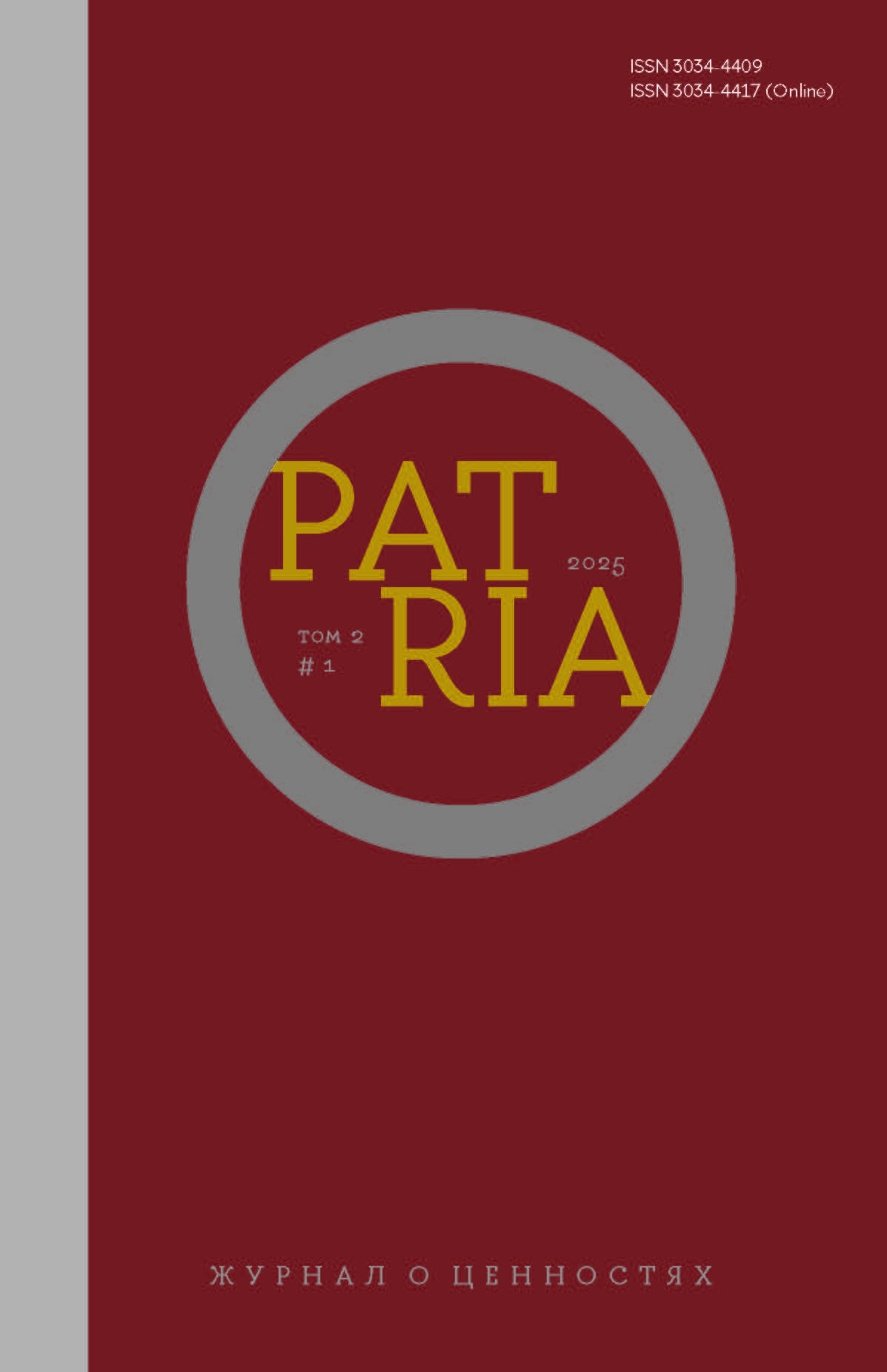Time and Place for Modern Collectivism
Abstract
The article considers the problem of preserving, supporting and developing collectivism as a traditional spiritual and moral value. In modern society the principles of individualism have become the normative basis, i.e. the primary pursuit of private rather than group interests, thus the understanding of the phenomenon and concept of collectivism as historical and outdated has become widespread. The author shows that this idea does not correspond to contemporary reality and does not meet the challenges of the current time. On a theoretical level, collectivism and individualism are not independent entities. There is a certain balance between them, corresponding to the adaptive needs to the situation of a particular society at a particular time. The confrontation of the two systems in the 20th century significantly changed the balance between collectivism and individualism in favor of the latter. Despite the naturalization of individualistic discourse, this shift was not a foregone conclusion, but was created. The article consistently addresses three subjects: the relationship between the concepts of collectivism and individualism in the perspective of social theory in the second half of the 20th century; the foundations of capitalist individualism; finally, to the time and place for modern collectivism that arise from the imbalance between collectivism and individualism. The individualism as a basis of modern capitalism turns out to be contradictory for the very existence of society, its harmonious development and the achievement of those goals (free self-realization) that are declared as the main ones. The current situation opens up opportunities for a conscious appeal to the values of collectivism, which transform from historical to modern and provide the person with the opportunity to self-express.
Downloads
References
Baeva L. V. (2024) “Traditional Values: A Concept and Meanings”, Patria, vol. 1, no. 3, pp. 8–22.
Bardhan P. (2000) “Irrigation and Cooperation: An Empirical Analysis of 48 Irrigation Communities in South India”, Economic Development and Cultural Change, vol. 48, no. 4, pp. 847–865.
Bauman Z. (2005) The Individualized Society, Moscow: Logos.
Bauman Z. (2021) Freedom, Moscow: Novoe izdatel’stvo.
Caputo J. (2011) “How Secular World Became Post-Secular”, Logos, no. 3 (86), pp. 186–205.
Elliott A. (2013) “The Theory of New Individualism”, Subjectivity in the Twenty-First Century: Psychological, Sociological, and Political Perspectives (ed. by G. W. Tarafordi), Toronto: University of Toronto Press, pp. 190–209.
Fedotova V. G., Kolpakov V. A., Fedotova N. N. (2008) The Global Capitalism: Three Great Transformations, Moscow: Kul’turnaya revolutsiya.
Friedman M. (2006) Capitalism and Freedom, Moscow: Novoe izdatel’stvo.
Gestwa K. (2018) “Soviet Man. History of a Collective Concept”, Vestnik obshchestvennogo mneniya, no. 1–2 (126), pp. 58–79.
Graeber D. (2020) Bullshit Jobs: A Theory, Moscow: Ad Marginem Press.
Gruzdev I. A., Startsev S. V. (2024) “Renaissance of Tradition: Reception of Traditional Values by Active Youth of Russia”, Patria, vol. 1, no. 1, pp. 70–90.
Guseynov A. A., Pavlov A. V. (2022) ““The Paradoxical Nature of Zinoviev’s Speeches Was a Natural Consequence of Their Truth”. An Interview”, Logos, vol. 32, no. 6, pp. 1–22.
Hannachi M., Fares M., Coleno F., Assens C. (2020) “The “New Agricultural Collectivism”: How Cooperatives Horizontal Coordination Drive Multi-Stakeholders Self-Organization”, Journal of Co-operative Organization and Management, vol. 8, iss. 2.
Hardt M., Negri A. (2004) Empire, Moscow: Praxis.
Klinova M. A. (2018) “The Concepts of “Collectivism” and “Individualism” in Soviet Periodics (1946–1953)”, Document. Archive. History. Modernity, vol. 18, pp. 339–346.
Kotkin S. (2001) “Modern Times. The Soviet Union in the Interwar Conjuncture”, Michel Foucault and Russia: A Collection of Essays (ed. by O. Harkhordin), Saint-Petersburg; Moscow: EU Press: Letnij sad, pp. 239–314.
Lebedeva N. M., Tatarko A. N. (2007) Cultural Values and Society Development, Moscow: HSE Publishing House.
Lipovetsky G. (2012) The Empire of Fashion, Moscow: New Literary Observer.
Marttila T. (2013) The Culture of Enterprise in Neoliberalism: Specters of Entrepreneurship, N. Y.: Routledge.
McCombs M. D. (1991) “The Moral Philosophy of Individualism: Its History and Relationship with Collectivism”, Draftings In, vol. 6, no. 2, pp. 29–36.
McGrath J., Corrin J. P. (2025) “The Modernization of the Western World”, The Modernization of the Western World. 3rd ed. (ed. by J. McGrath and K. C. Martin), N. Y.; L.: Routledge, pp. 1–7.
Pavlov A. V. (2023) “Fight Club, Capitalist Gothic, and the Meaning of Interpretation”, Logos, vol. 33, no. 3, pp. 165–216.
Pisarev A. A. (2024) “Foucault’s Failed “Death of Man”: Its Structure, Problems and Relevance”, Chelovek, vol. 35, no. 6, pp. 7–30.
Poberezhnikov I. V. (2001) “Theory of Modernization”, The Problems of Russian History. Vol. 4. Eurasian Borderland (ed. by A. T. Shashkov), Ekaterinburg: Volot, pp. 217–246.
Radaev V. V. (2020) “The Divide among the Millennial Generation: Historical and Empirical Justifications. (Part one)”, Sotsiologicheskiy Zhurnal / Sociological Journal, vol. 26, no. 3, pp. 30–63.
Rakova K. V. (2024) “Consolidating Potential of Modern Russian Society: A Sociable and Morally Sacrificial Person”, Chelovek, vol. 35, no. 6, pp. 70–89.
Robertson R., White K. E. (2007) “What is Globalization?”, The Blackwell Companion to Globalization (ed. by G. Ritzer), Malden: Wiley-Blackwell, pp. 54–66.
Rouvroy A., Berns T. (2013) “Algorithmic Governmentality and Prospects of Emancipation. Disparateness as a Precondition of Individuation through Relationships?”, Réseaux, vol. 177, no. 1, pp. 163–196.
Sklair L. (2016) “The End of the World or the End of Capitalism?”, Global Dialogue: Newsletter for the International Sociological Association, vol. 1 (March 2016), pp. 22–23.
Twenge J. (2019) iGen. Why Today’s Super-Connected Kids Are Growing Up Less Rebellious, More Tolerant, Less Happy — and Completely Unprepared for Adulthood — and What That Means for the Rest of Us, Moscow: RIPOL Classic.
Copyright (c) 2025 HSE University

This work is licensed under a Creative Commons Attribution 4.0 International License.



